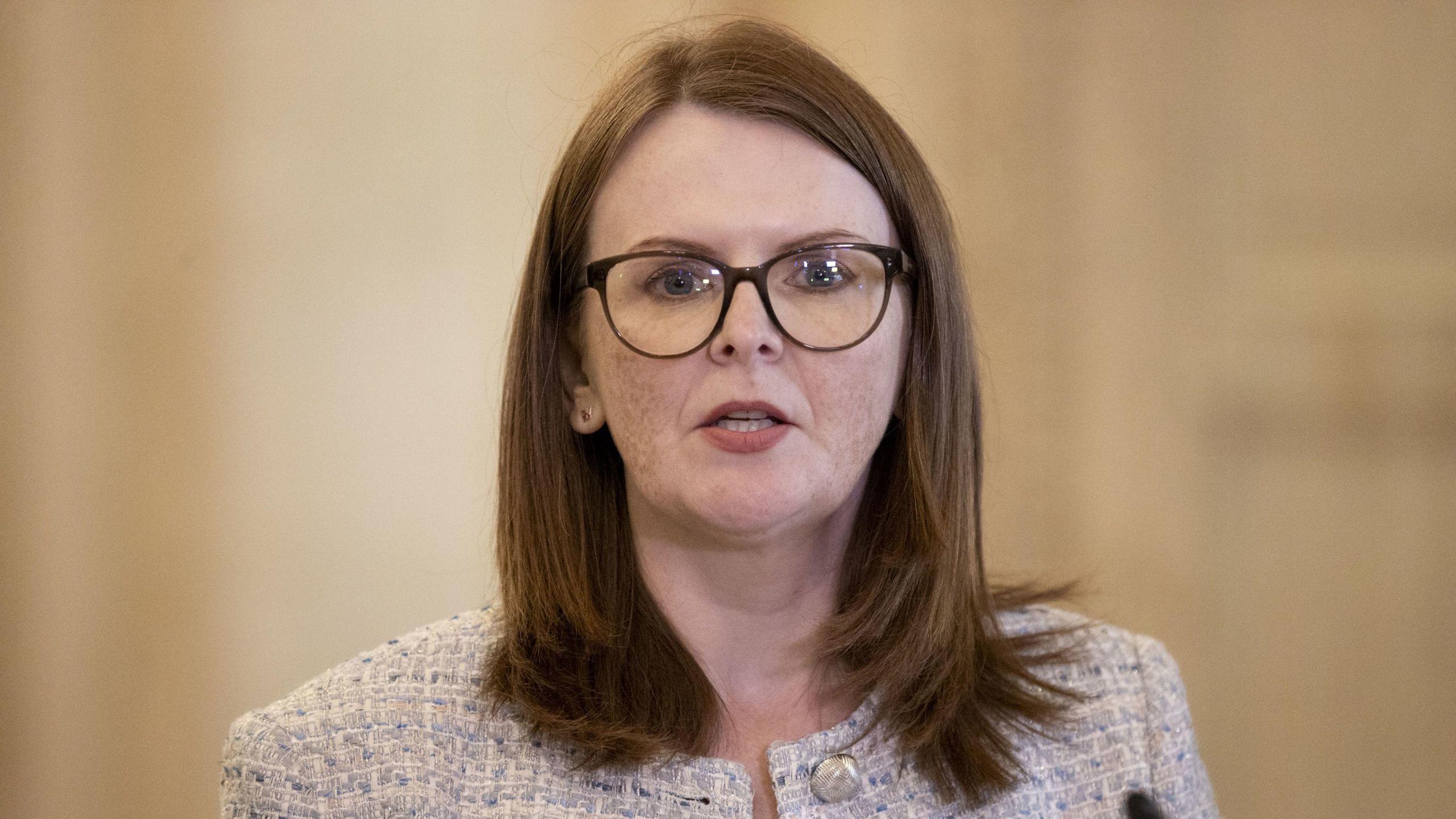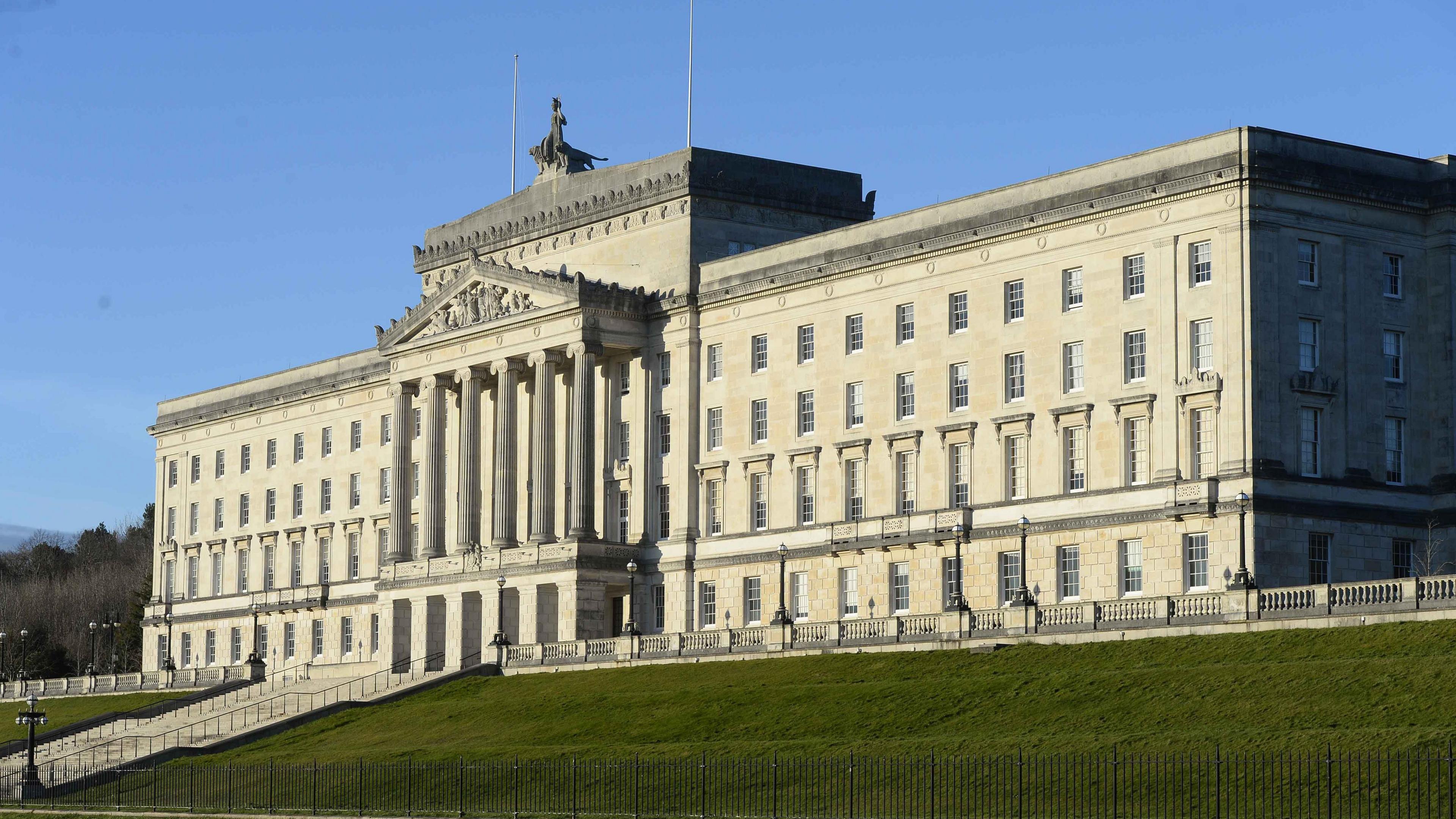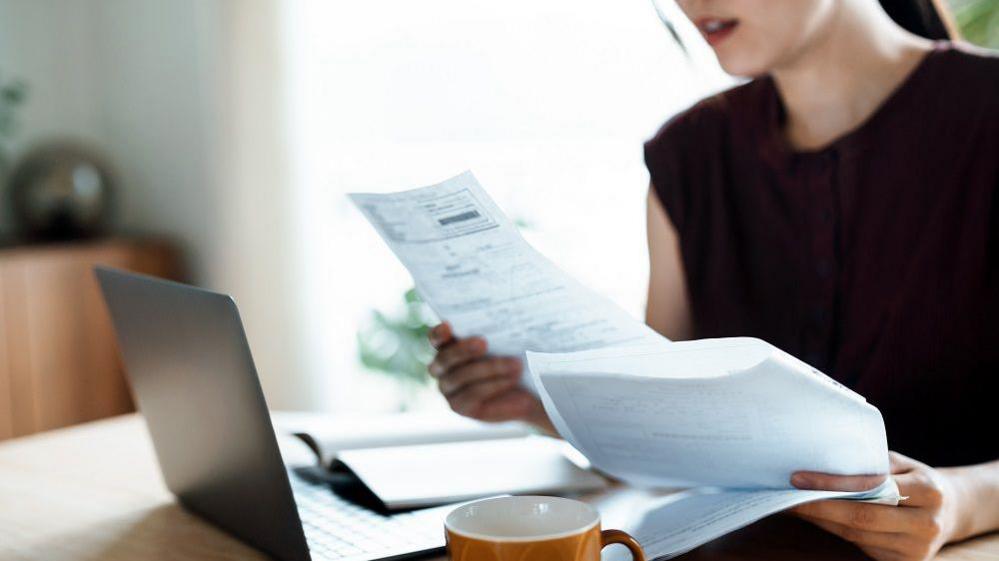Stormont departments 'face £767m spending pressure'

Finance Minister Caoimhe Archibald believes an extra £767m is needed
- Published
Stormont departments are currently facing spending pressures of £767m, the finance minister has told MLAs.
That means departments believe they need this amount more than what is currently in the budget.
Caoimhe Archibald said Stormont can expect to get about £500m extra partially as a consequence of October’s Westminster budget.
She said while that will go a "significant way" towards easing the pressures, ministers will have to play their part and there would only be "full certainty" of the amount towards the end of this year.

Ministers were warned not to trigger the repayment of a previous overspend
Ms Archibald also warned that if ministers did not operate within budget it would have "grave consequences" for future public funding.
She said the Treasury has been "explicit" that any overspend this year would trigger the suspended repayment of a previous £559m overspend.
"We must face up to the challenges, strive to live within our budgets and avoid a scenario in 2025-26 of having to deal with paying back any overspend from this year along with a further £559m from previous years, by taking the responsible decisions that we need to achieve financial balance this year," she told the Assembly chamber.

The finance minister said she will bring forward proposals to make rates higher for some households and businesses
Ms Archibald also signalled that she is set to propose measures which will mean higher rates bills for some households or businesses.
Rates are a property tax and the main way by which Stormont can raise additional revenue.
The minister said she wants to "build a progressive rates system which grows our tax base and stimulates our economy".
Her department has published responses to a rates consultation which was started by the UK government while devolution was suspended.
She said: "I will be bringing forward short, medium and long-term rating policy proposals including a more strategic longer-term policy approach in the coming weeks."
The consultation included a proposal to increase rates for the most valuable houses.
Rates are based on property values and the rateable value of houses is currently capped.
No houses are assumed to be worth more than £400,000 at a 2005 valuation.
That means that large homes in more affluent areas of north Down, for example, currently pay the same rates as much more modest detached houses.